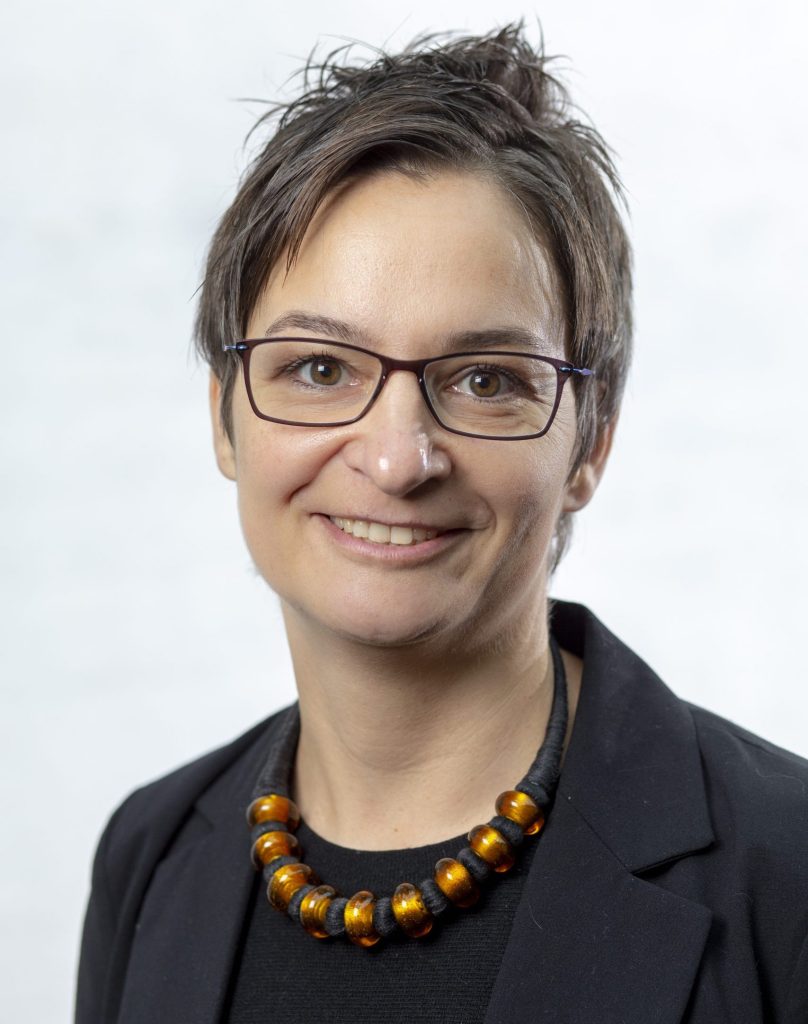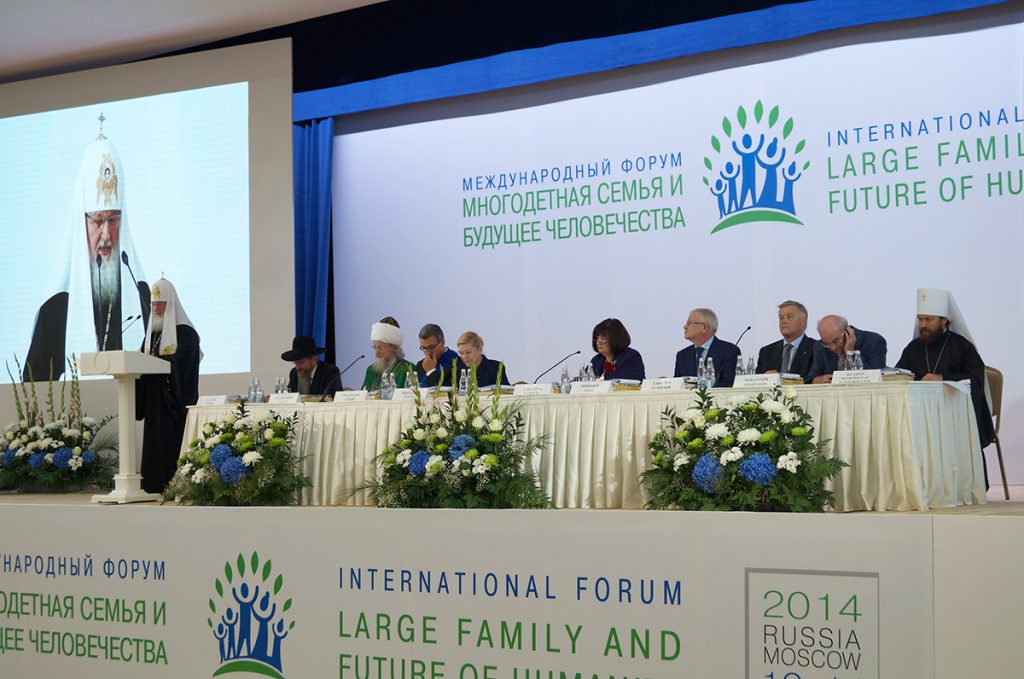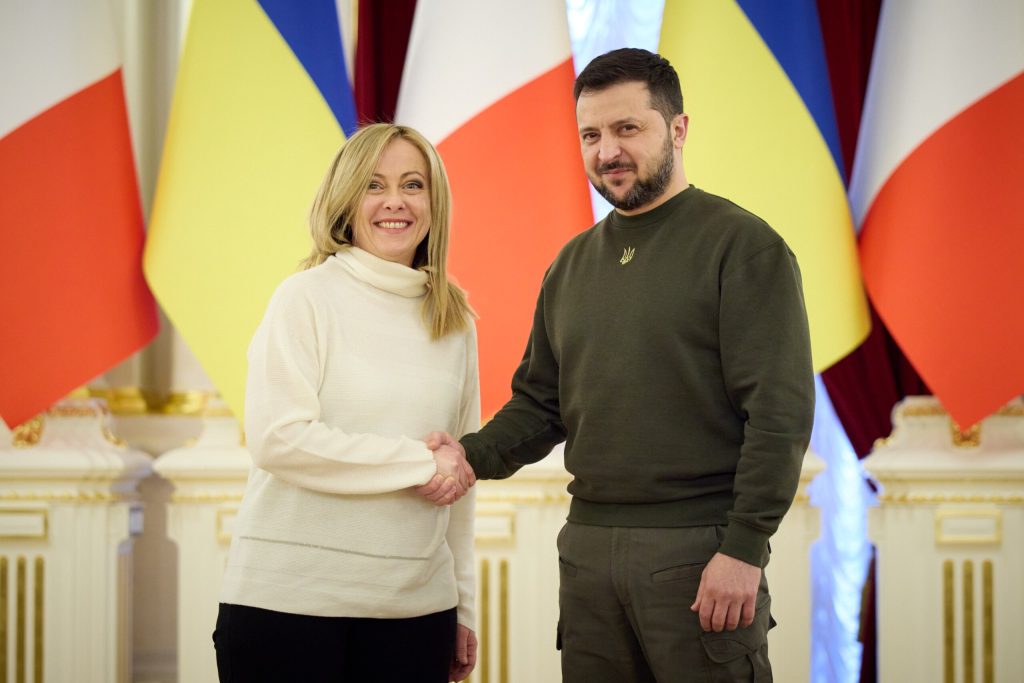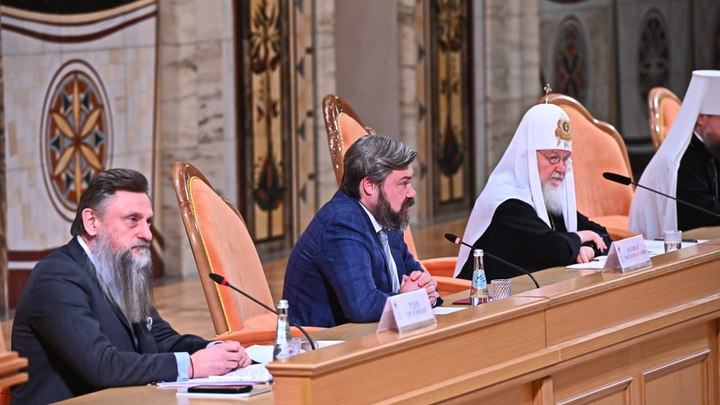
Kristina Stoeckl is a full professor of sociology at LUISS Guido Carli University in Rome.
In the decade preceding Russia’s full-scale invasion of Ukraine, from roughly 2012 until 2022, the Russian Orthodox Church, Russian politicians, state diplomats, and civil society organizations financed by Kremlin- or church-affiliated entrepreneurs worked in unison to create the image of Russia as the defender of “traditional values” in Europe and in the world.
The turn to traditional values as official state ideology included a law that criminalized offenses to religious feelings; a ban on LGBTI rights; the outlawing of critical NGOs, journalists, and other professionals as “foreign agents”; the decriminalization of domestic violence; and pervasive top-down messaging framing Russia’s civilizational mission as the conservative katehon that withstands Western liberalism. The term katehon, from the Greek “the one who withholds”, is frequently used by Russian nationalists to describe the spiritual dimension of the Russian state. All of this was already happening and well documented by scholars and observers before the full-scale military attack on Ukraine in February 2022, which was promptly justified by state propaganda as a necessary step to defend Russia’s traditional values against foreign threats.
In terms of foreign policy, the traditional values agenda served the purpose of building Russian soft power in the world. It became the ideological basis on which Russia consistently presented itself as the alternative model to liberal democracy: a political power that privileges authority over democracy, majority control over individual human rights, religion over secularism, heterosexuality and top-down norms over gender equality and pluralism. Many disgruntled Christian conservatives in the West were drawn to this conservative Russia, but very few of them realized that it was—to a large extent—a Russia of their own making.
In The Moralist International. Russia in the Global Culture Wars, I analyzed, together with my co-author Dmitry Uzlaner, how, since the period of Perestroika, Christian conservative ideas from the West have come to dominate the Russian—and also Russian Orthodox—self-understanding of what it means to be a conservative power in the modern world. We argued that
[p]ro-life and pro-family activism, homeschooling, and the rejection of gender rights are four concrete policy areas in which Russians have taken lessons from Western actors. Around these topics, the Russian Orthodox Church, Russian lay activists, and state actors developed a consistent domestic and international moral conservative agenda that turned Russia into a key player on the conservative side of the global culture wars.
During our empirical research between 2016 and 2019, we witnessed interactions between Western conservatives and their Russian interlocutors at events organized by the World Congress of Families; we interviewed numerous Russian, U.S. American, and European activists who were engaged in dialogue- and strategy-building; and we followed the communication of their ideas on the internet. We also interviewed experts and observers at the United Nations and the European Court of Human Rights. The picture that emerged was that Russia was the engine pulling the train of anti-liberalism in global politics on the level of international institutions and also inside specific countries by lending support to far-right and illiberal parties.

When our book came out in 2022, we interrogated ourselves on the effects of Russia’s war in Ukraine on this global agenda. We wrote,
The current events will change the fortunes of the Moralist International in ways that are difficult to predict, but just like a car in full speed covers a certain breaking distance before it stops, Russia’s weight inside the global culture wars produces a momentum of continuity.
Two years later, the contours of that continuity have become clearer. In the immediate aftermath of the invasion, many Western conservative fans of Russia walked back their views. Among them are Rod Dreher and Patrick Deneen, as analyzed by Will Cohen in his Public Orthodoxy piece.
In Western Europe, it has been interesting to see that the most vocal intellectual supporters of Russia after 2022 have not been moral conservatives; rather, they have been Cold War realists and anti-American leftists. The former agree with Putin’s claim that Russia is a superpower and should have its exclusive sphere of influence; the latter never liked NATO and agree with Putin’s assessment that the Western military alliance is a threat. In contrast, politicians on the right—like Italy’s political leader Giorgia Meloni—and Christian conservatives who previously expressed admiration for Russia’s robust defense of traditional values and attended events like the World Congress of Families, have either disavowed their former ally or have turned silent.

The networks that connected Russia to Western conservative civil society have become broken or no longer visible. Both international sanctions and travel bans have put an end to the kind of face-to-face interaction that we documented in our book. To a certain extent, however, these interactions had already been interrupted by the global pandemic, and the Russian invasion of Ukraine simply prevented their revival.
When the first post-pandemic World Congress of Families was organized in Mexico in 2022, no Russian participants were present. This was a stark contrast to the pre-pandemic congresses in Verona, Chisinau, Budapest, and Tbilisi that featured Russian speakers and sponsorship.
The Canada-based organization Global Home Education Exchange (GHEX), the international branch of the Homeschool Legal Defense Association, likewise appears to have severed its ties with Russian partners. In 2018, the Global Home Education Conference was organized in Russia, locally hosted by the Saint Basil the Great Foundation directed by Russian ultra-nationalist oligarch Konstantin Malofeev. Until 2023, Russian activists still figured as board members on the GHEX website; today they are no longer mentioned.

The Spain-based conservative petition website CitizenGo likewise first published a disclaimer (no longer online) on Russia and Ukraine in which it condemned the Russian invasion of Ukraine and denied charges that it ever received funding from Russia. The name of its Russian board member disappeared from the website, and the CitizenGo Russian-language website was taken down. Among the hundreds of petitions run on CitizenGo, not a single one appears to question EU sanctions against Russia or weapons deliveries to Ukraine.
On the level of official church relations, diplomatic channels and ties have likewise been strained by the war. The Vatican seems to have given up on the idea of meaningful dialogue with the Russian Orthodox Church after several much-criticized attempts of Pope Francis to move the conscience of Patriarch Kirill (including the famous “Don’t be Putin’s altar boy”). The Catholic Church, like other Christian actors that favorably connected to Russia’s traditional values agenda in the past decade, surely did not change their ideological preferences and ethical outlook. But they appear to no longer want to attach their agenda to a Russia that wages a ruthless war against its neighbor.
These instances of rupture between moral conservative networks in the West and Russia are counterbalanced by new connections. Russia has positioned itself forcefully as defender of traditional values, sovereignty, and autocratic leadership in the world, and this political model is attractive to China, India, Brazil, South Africa, the Islamic states, and other countries in the global South. The liberal democratic West—democracy as such—is on the defensive in this global constellation. Also, inside the West, the Russian agenda continues to be attractive to politicians and parties on the right, and their electoral success—Trump in the United States, Le Pen in France, AfD in Germany, or Salvini’s Lega Nord in Italy—could lead to a revival of the Moralist International.
